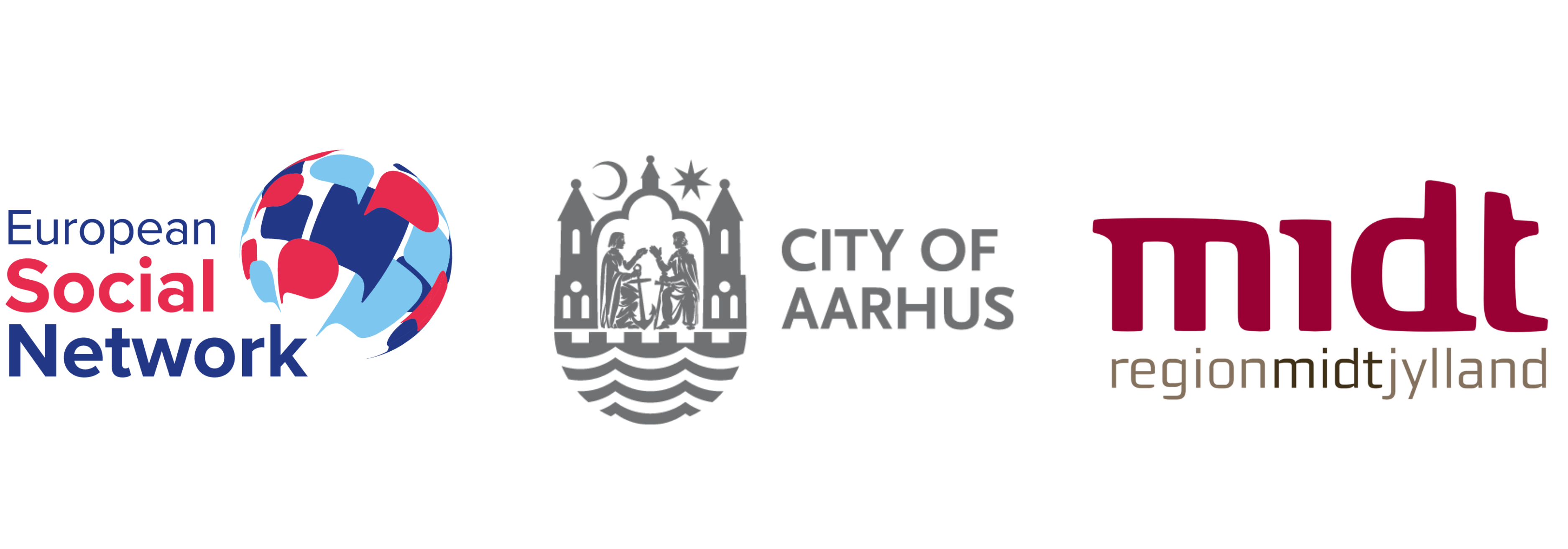Focusing on the intersection of relational welfare and welfare technology, this year’s European Social Services Conference (ESSC), Where Care Meets Tech, will platform innovative new approaches to enhance personalisation and empower people in vulnerable situations. In this month’s edition of the Speaker Spotlight Series, we turn our attention to the important insights and research of keynote speaker Vincent Meyer. Vincent is a Professor of Information and Communication Sciences at the Université Côte d’Azur, France, where he is currently leading research on the acceptability of technology innovation in the social sector. With decades of research dedicated to the field, Vincent has become a leading voice in critically examining how technology is integrated into social work.
Ahead of his keynote presentation, we spoke with him about the social acceptability of technology in social services, his pioneering research into 3-D printed food designed for people with multiple disabilities, and the ethical implications of utilising digital tools in social services.
In your research, you explore how the digital transformation impacts social work. What do you believe are the most promising digital solutions for supporting people with disabilities and vulnerable populations?
“To ask the question in this way is to assign a moral value to the technologies equipping this digital transition and to open the door to technological solutionism, especially in terms of promises. That is not my approach to research in the humanities and social sciences. My approach is to describe, as closely as possible to the needs and demands of the public in situations of disability, fragility and/or vulnerability, the pervasive nature of these technologies, i.e. how they enter into our lives, pre-shape interactions with these publics, and transform the professional practices in this field.”
As digital tools become increasingly integrated into social services, what types of training or skill development do you believe are most essential for social service professionals?
“This question of training (initial and continuing) is essential and goes beyond the classic responses in terms of inclusion or digital mediation. It concerns both social workers in their support roles and their managers in their decision-making and leadership responsibilities. There is still noticeable room for improvement in France. In light of ongoing developments, we are all eternal learners. Regarding social and medico-social establishments and services, the challenge is above all to grasp what are—concretely and effectively—the access, usage, and appropriation of both the people supported and the professionals. In initial training, it is necessary to raise awareness of the stakes and challenges of the digital transition, notably its impact on forms of control, issues of autonomy, and those of deinstitutionalisation. Continuing education should focus more on the implementation of “digital action plans” specific to each support case or professional situation depending on the sectors and target populations.”
In your presentation, you aim to focus on the social acceptability of technological solutions in long-term care. How do you assess the social acceptability of technology in social services?
“A first and not insignificant observation: various digital technologies (non-human) for people in situations of disability, fragility, and vulnerability are now integrated and even promoted as complementary solutions to existing (human) professional practices. It is therefore first and foremost with social services that their acceptability must be assessed. In the framework of my research, I propose an analytical grid covering six elements to problematise: the sociotechnical devices (which technologies are we talking about?); the practices (the solutions that these technologies ideally propose to us); the publics (who are ultimately the beneficiaries?); the access (that of the price to pay, of the possibility of testing, of the efforts and timelines in accessibility as well as the information characterising it); the appropriation (what controversies: interpretation of risks, obstacles and barriers, “overestimations” as well as uncertainties); the uses (or non-uses, i.e. actual handling in a given social time as well as possible diversions and/or abandonments).”
What do you think are the main barriers to successfully integrating digital technologies into existing social service systems, and how can they be overcome?
“To be deliberately provocative, there are no longer really any barriers. These technologies are already here/everywhere and equip all professional fields. Digital technologies will no doubt succeed in achieving what no one would have really dared to imagine as an evolution in social work: i.e., an algorithmic governmentality to ensure a new management of social action in practice; a transfer of human skills into platforms, applications, and the Internet of Things, ensuring 24/7 care and otherwise meeting each person’s legitimate aspirations to autonomy and, consequently, any reflection on what could be a deinstitutionalisation of social services and establishments.”
Drawing on your recent research project, could you share more about the ANR Deal4hand project? What led you to explore the intersection of 3D printing, food design, and people with multiple disabilities?
“This work in co-innovation with INRAE Clermont-Auvergne—funded by the National Research Agency as part of a call for projects “Science with and for Society: innovative ambitions”—concerns the social acceptability of 3D food printing for people in situations of multiple disabilities. The little-studied and developed digital technology in the field of food already makes it possible to respond differently to various nutritional needs (textures, compositions, and flavors), to the quality/quantity of nutrients, to chewing/digestion problems and, more broadly, to reduced appetite, notably through food design (e.g., puréed food). This is all the more interesting because designing food to be consumed through 3D printing (additive manufacturing of edible pieces) still represents, for many, a food taboo. France, a country of gastronomy if ever there was one, is undoubtedly a terrain of excellence for testing this process and its promises. A process whose potential to revolutionise “better eating tomorrow” we cannot yet predict, but for which we have the possibility, through interdisciplinarity (between life sciences, engineering sciences and human and social sciences), to reveal from the outset its social acceptability with a public still too rarely considered in current research. Thus, the Deal4hand project—“Digital design of functional foods for people in situations of multiple disabilities: a socially acceptable innovation?”—is an action-research project based on the possible applications of digital design (3D printing, generative design) to conceive and produce functional foods for the purpose of personalised (re)nutrition of adults with multiple disabilities living in medicalised care homes. This digital technology especially allows us to test in situ and to discuss the analytical framework of social acceptability as presented above, as closely as possible to the needs and demands of these individuals in their daily institutional lives and through qualitative data collection.”
Looking ahead, how do you envision the future of digital tools in social work and care?
“We must think about what really creates “added value” for a social worker in this digital transition. Think it through, for and with their audiences, and bring into discussion the social acceptability of these “innovations” (from companion robots, the Internet of Things, to virtual and/or augmented reality processes…). In doing so, we will learn a lot about the ways our lives are being taken care of, between control, behavioural standardisation, and hyper-personalisation. No doubt, social establishments and services, as well as professionals, must be careful not to talk about digital technology—which simulates, represents, replaces functions, is in service 24/7, or even performs difficult or arduous activities in their place—as if it were a human being. No doubt, they must preserve their free will and also choose an attitude of waiting, of reinforcing in this digital transition their “professional conscience” by deploying situational intelligence (i.e., returning to “discernment”; digital technologies do not yet have the ability to measure the ethical and moral consequences of their functionalities and data collection). Finally, no doubt, these unprecedented developments of social work in the digital age condemn us, in the beautiful words of French philosopher Michel Serres (1930–2019), to “become intelligent.””
Professor Meyer’s work requires us to look beyond notions of efficiency and innovation and instead urges us to critically engage with how digital tools are experienced and utilised in social care. His emphasis on social acceptability as an analytical framework challenges us to rethink the roles of both professionals and the technologies that support them. Professor Meyer critically analyses the impact of digital tools, how they shape interactions of people who use them and how they affect professional practices. Ultimately, this urges us to critically reflect on the matter and highlights the importance of co-creation, ethics, and person-centred care.
Join us for this year’s ESSC in Aarhus, Denmark, to hear from inspirational speakers and discover more about how relational welfare approaches and welfare technology are shaping the future of social services.
For more information about Vincent’s work please follow the links below:
https://www.leh.fr/edition/p/transition-digitale-handicaps-et-travail-social-9782848747033
https://www.istegroup.com/fr/produit/dictionnaire-du-numerique-2/
https://www.sciencedirect.com/science/article/abs/pii/B9780323917421000039

